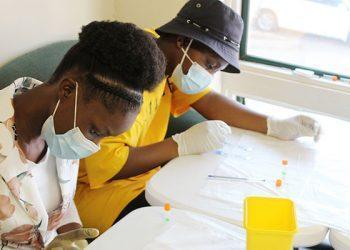- November 30, 2022
- Posted by: acuadmin
- Category: News

Recently there have been a number of publications and reports describing potential or actual misdiagnosis of HIV status. In response, WHO has collaborated with the Journal of the International AIDS Society to compile a series of papers contained in a special supplement of the journal focusing on the issue of HIV misdiagnosis.
This Q&A draws from the journal supplement, other published reports on misdiagnosis and quality of testing issues and the current WHO guidelines on HIV testing (detailed below). It aims to:
- advise and reassure WHO staff and partners, including Ministries of Health and other providers of HIV testing services, that the latest WHO guidelines on HIV testing (listed below) remain the international standard of care and that using WHO prequalified rapid diagnostic tests within an appropriate testing strategy based on HIV prevalence, a validated testing algorithm and with a quality assurance system in place, will provide highly accurate and reliable HIV diagnoses.
- reinforce the ‘correct result’ element of the WHO “5Cs”—consent, confidentiality, counselling, correct results and connection, which remain the guiding principles for all HIV testing services. For many years, WHO has been focusing on quality of HIV testing to ensure that clients are provided with the correct status.
- highlight the support that WHO can provide to countries and national HIV programmes on quality HIV testing, including:
- Conducting assessment of quality, safety and performance on HIV rapid diagnostic tests and prequalifying rapid diagnostic tests which achieve ≥99% sensitivity and ≥98% specificity. Through these WHO prequalification processes, WHO Member States are able to procure HIV RDTs that meet these high quality standards for accuracy.
- Establishing standardized HIV testing strategies (i.e. the number of and order in which a series of HIV tests are performed) for high prevalence (≥5%) and low prevalence (<5%) populations and settings and providing product selection guidance;
- Developing quality assurance (QA) and quality improvement (QI) systems and training tools on delivering HIV testing services;
- Providing ongoing technical support to countries regarding specific issues relating to quality of HIV testing.
- provide useful and accurate information to people who may have read these reports and reiterate WHO’s existing guidelines and recommendations on how to ensure the quality of HIV testing services to provide correct HIV test results and diagnose HIV accurately. Relevant WHO guidelines and information are available at the following links.
Our Courses
-
Advanced Certificate In HIV Counselling And Testing
With hundreds of medications in the market, Pharm Ltd. needed a proper method to predict and manage their inventory. Using a mean absolute percentage analysis (MAPE), the teams defined appropriate levels for raw materials and finished products by mapping.
November 28, 2022 Read more -
HIV Rapid Testing- (Serial Testing)
With hundreds of medications in the market, Pharm Ltd. needed a proper method to predict and manage their inventory. Using a mean absolute percentage analysis (MAPE), the teams defined appropriate levels for raw materials and finished products by mapping.
November 28, 2022 Read more



